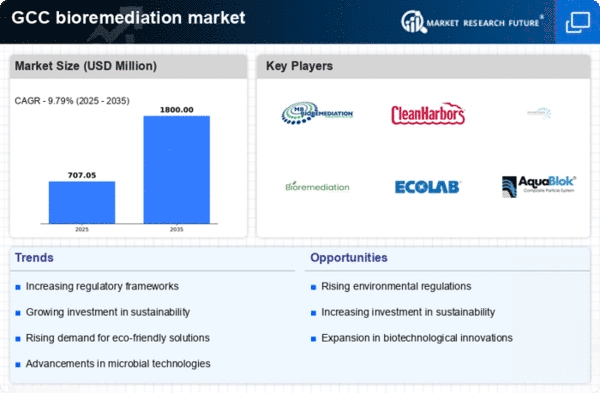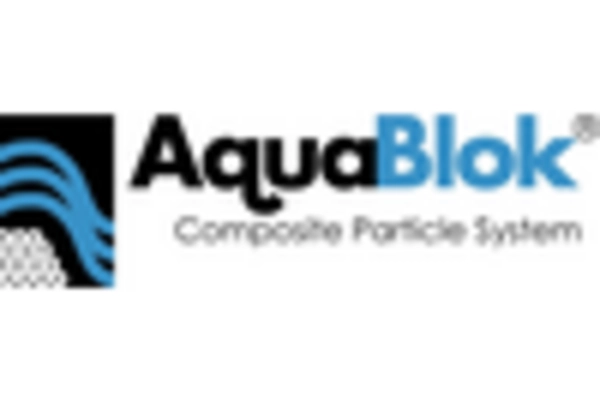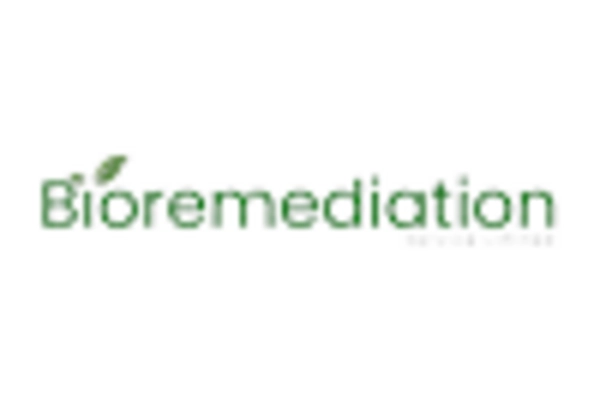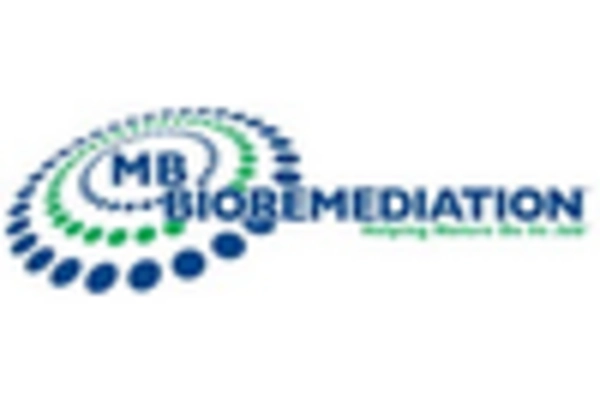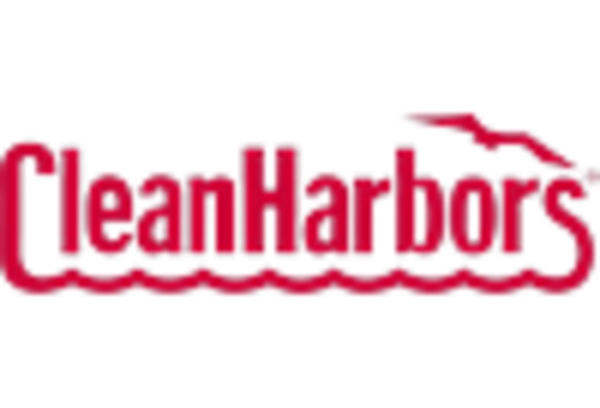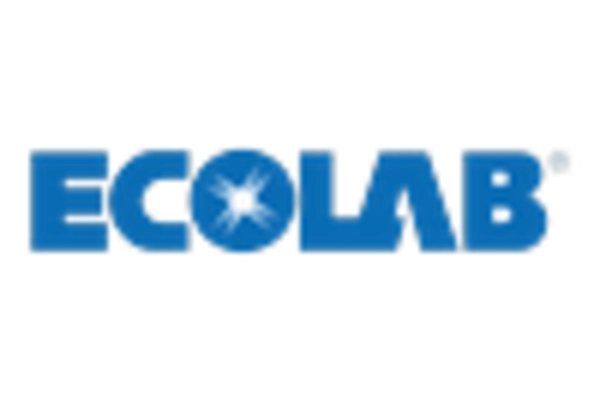Public-Private Partnerships
Public-private partnerships (PPPs) are emerging as a vital driver for the bioremediation market in the GCC. Collaborative efforts between government entities and private companies are facilitating the implementation of large-scale bioremediation projects. These partnerships leverage the strengths of both sectors, combining public oversight with private sector efficiency. By pooling resources and expertise, PPPs are likely to enhance the effectiveness of bioremediation initiatives. In 2025, it is anticipated that several major bioremediation projects will be launched under PPP frameworks, potentially exceeding $300 million in total investment. This collaborative approach is expected to accelerate the adoption of bioremediation technologies and improve environmental outcomes across the region.
Rising Environmental Concerns
The increasing awareness of environmental degradation in the GCC region is driving the bioremediation market. As industrial activities and urbanization escalate, the need for effective waste management solutions becomes paramount. Governments and organizations are recognizing the detrimental effects of pollution on ecosystems and public health. This has led to a surge in investments in bioremediation technologies, which are perceived as sustainable alternatives to traditional remediation methods. The bioremediation market is projected to grow at a CAGR of approximately 10% from 2025 to 2030, reflecting the urgency to address environmental issues. Stakeholders are likely to prioritize bioremediation solutions to mitigate soil and water contamination, thereby enhancing the overall ecological balance in the region.
Government Initiatives and Funding
Government initiatives aimed at promoting sustainable practices are significantly influencing the bioremediation market in the GCC. Various national policies are being implemented to encourage the adoption of eco-friendly technologies. For instance, funding programs and grants are being allocated to support research and development in bioremediation techniques. The GCC governments are increasingly recognizing the economic benefits of investing in green technologies, which not only address environmental challenges but also create job opportunities. In 2025, it is estimated that government funding for bioremediation projects could reach $500 million, underscoring the commitment to fostering innovation in this sector. Such initiatives are likely to enhance the competitiveness of the bioremediation market.
Industrial Growth and Waste Generation
The rapid industrial growth in the GCC region is contributing to an increase in waste generation, thereby propelling the bioremediation market. Industries such as oil and gas, manufacturing, and construction are expanding, leading to higher levels of hazardous waste. This situation necessitates effective waste management solutions, with bioremediation emerging as a viable option. The market is expected to witness a surge in demand for bioremediation services, particularly in sectors that produce significant waste. By 2025, the bioremediation market could capture a substantial share of the waste management sector, driven by the need for sustainable practices. Companies are likely to invest in bioremediation technologies to comply with stringent environmental regulations and enhance their corporate social responsibility.
Technological Innovations in Bioremediation
Technological innovations are playing a crucial role in shaping the bioremediation market in the GCC. Advances in microbial technology, bioaugmentation, and phytoremediation are enhancing the efficiency and effectiveness of bioremediation processes. These innovations are enabling faster degradation of pollutants and improving the overall success rates of remediation projects. As a result, companies are increasingly adopting these advanced technologies to address complex contamination issues. The bioremediation market is expected to benefit from these developments, with a projected growth rate of 12% annually over the next five years. The integration of technology into bioremediation practices is likely to attract more investments and foster collaboration between research institutions and industry players.


